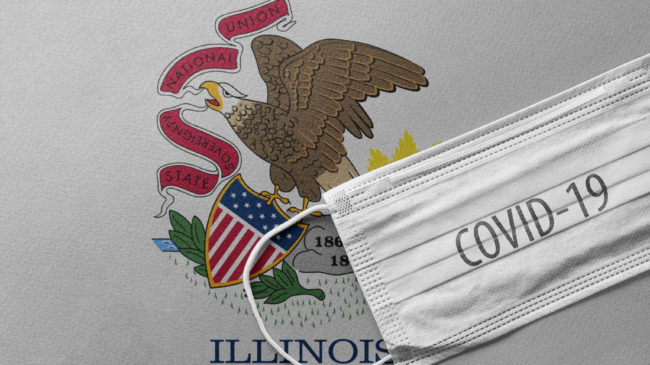Illinois State Senate President Don Harmon, through the Illinois congressional delegation, recently requested a $10 billion public pension bailout from the federal government.
In the letter, Mr. Harmon suggests that Illinois is making progress on addressing its pension debt, but that the coronavirus pandemic is causing difficulty because of revenue losses to the state. He writes:
$10 billion in pension relief, directly for the state’s retirement systems:
Illinois largest liabilities are its unfunded pension liability at $138 billion and other post-employment benefits liability at $54 billion. Illinois law has put the state on a path to fund the pension liability in a manner that is actuarially sound, and the state has been following the payment plan set out in that law. In a normal year the size of those payments crowds out funding for services and programs. Clearly this will not be a normal year and that crowding out effect will be exacerbated by significant revenue losses. I would ask that the federal government: 1. Provide direct cash assistance to the pension systems; or 2. Offer a low interest federal loan to aid Illinois in our efforts to restore and maintain retirement security for public sector workers, many of which are on the frontlines of this pandemic battle.
Clearly this request is addressing a public pension crisis that is not short-term in nature, but one that has been going on for decades. The state created this pension crisis and while it may be amplified by the coronavirus pandemic, it certainly was not caused by it.
While the efficacy of this funding request is likely to be debated from all corners of the political spectrum, let’s look at the request for what it is — a cry for help from a state that is drowning in pension debt.
The problems with Illinois’ public pension systems have been known for years and have caused service cuts, tax increases, benefit reductions for new state workers, and dramatic reductions in the state’s credit ratings. Despite a failed attempt at pension reform in the last decade that was overturned by the courts, Illinois been unable to revisit the issue and enact meaningful pension reforms that would address its public pension plans’ funding and create more efficient and effective plans for future hires.
Hopefully, Illinois’ request for a bailout from federal taxpayers is an indication that the state is finally ready to seriously address the devastating financial crisis of its own making.
Perhaps this cry for help reflects an acknowledgment that the state can no longer rely on tax increases, service cuts, prospective benefits reductions and workforce reductions to keep its failing pension systems on life support. Laying the burden on taxpayers, students, public employees and consumers of public services is untenable.
While the pension crisis is likely to be exacerbated by the COVID 19 pandemic and economic downturn, that’s the reality Illinois must now live in. Economic uncertainty, which is already rising, will be amplified and cause strains on state and local government budgets going forward. Illinois should use this time of enhanced candor to look for real solutions to its pension crisis, including the introduction of fresh pension plan design options for new hires that would both better meet employee needs and eliminate the risk of accruing future unfunded liabilities.
Despite Illinois’ persistent inability to rise above politics to solve its pension problem to date, effective solutions exist and help is available.

